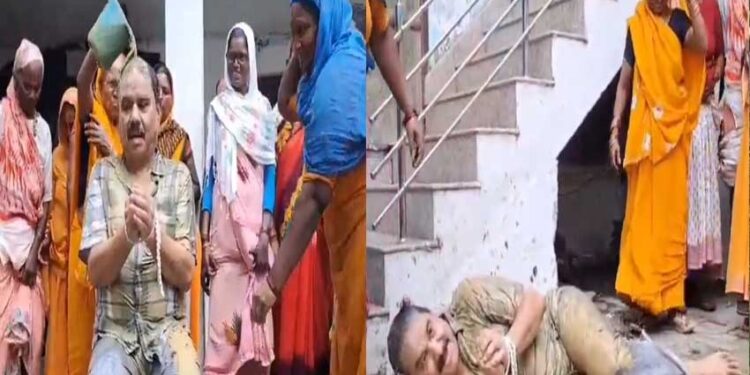History News Desk !!! Dara Shikoh (English: Dara Shikoh, born: 20 March, 1615; died: 30 August, 1659) was the eldest son of Mughal emperor Shah Jahan and Mumtaz Mahal. Shah Jahan loved his son very much and wanted to see him become the next emperor of the Mughal dynasty. Shah Jahan was also very fond of Dara Shikoh. He gave full respect to his father and followed his every order. Initially, Dara Shikoh was made the governor of Punjab, which he ruled from the capital through his representatives.
Persona
Dara was a brave man, and intellectually he inherited the qualities of his great grandfather Akbar. He was inclined towards Sufism and was a follower of the Hanafi sect of Islam. Historian Bernier has written in his book ‘Bernier Ki Bharat Yatra’- ‘Dara had no dearth of good qualities. He was a man of few words, quick wit, modest and extremely generous. But he considered himself very intelligent and wise and was proud of the fact that with his intelligence and efforts he could manage every task. He also believed that there was no person in the world who could teach him anything. He used to treat those people very badly who, out of fear, dared to give him some advice. Due to this, even his true well-wishers could not inform him about the efforts and tricks of his brothers. He was very skilled in scaring and threatening, so much so that he did not even hesitate in abusing and insulting important people, but fortunately, his anger would subside very soon.
Opposition to Aurangzeb
Dara Shikoh respected all religions and faiths and had special interest in Hinduism, philosophy and Christianity. Angered by his liberal views, fundamentalist Muslims accused him of spreading distrust towards Islam. Dara’s third brother Aurangzeb took full advantage of this situation. Dara participated in the third siege of Kandahar in 1653 AD. Although he failed in this campaign, he remained in his father’s good books. When Shah Jahan fell ill in 1657 AD, he was present near him.
Dara was 43 years old at this time and hoped to inherit his father’s throne. But his three younger brothers, especially Aurangzeb, opposed his claim.
Escape and death of wife
As a result, Dara Shikoh had to fight with his brothers for succession, but despite Shah Jahan’s support, Dara’s army was defeated by the combined army of Aurangzeb and Murad Baksh in the battle of Dharmat on 15 April 1658 AD. After this, Dara again set out with the royal forces under his own leadership to suppress his rebellious brothers, but this time too he had to face defeat in the battle of Samugarh on 29 May 1658 AD. This time it was not possible for Dara to return to Agra. He became a refugee and after wandering in Punjab, Kutch, Gujarat and Rajputana, he was successful in preparing a large army for the third time. His third and last encounter with Aurangzeb took place in April 1659 AD at Daurai. This time too he was defeated again. Dara again became a refugee and fled to Sindh via Rajputana and Kutch to save his life. Here his beloved Nadira Begum passed away.
death sentence
Dara Shikoh accepted the hospitality of Jivan Khan, the Afghan chieftain of Dadar. But Malik Jivan Khan proved to be a traitor, and he handed Dara over to Aurangzeb’s army, which was in pursuit of him in the meantime. Dara was taken prisoner and brought to Delhi, where on Aurangzeb’s orders he was paraded on the streets dressed as a beggar on a small elephant. After this, a case was filed against him in front of the mullahs. The mullahs sentenced him to death on the charge of treason.
Death
As a punishment, Dara Shikoh was beheaded on 30 August 1659 or 9 September 1659. His elder son Suleman was already a prisoner of Aurangzeb. In 1662, Aurangzeb killed him in prison. Dara’s second son Sepahrar Shikoh was spared, who later married Aurangzeb’s third daughter.










